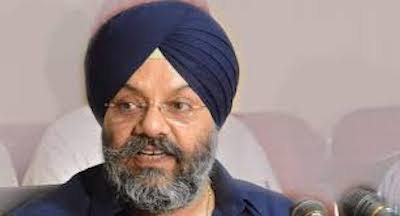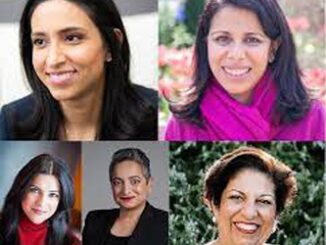
TBILISI (TIP): Georgia’s young protesters, having forced parliament into a U-turn on controversial new legislation, are determined to maintain the pressure on the government, which they believe is steering the country away from Europe. Thousands of young and mainly peaceful protesters flooded the capital Tbilisi this week. Many of them, speaking to AFP, insisted they were not motivated by party allegiances in the fiercely partisan country.
The over-arching reason they braved tear gas and water cannon, they said, was a firm belief that the ex-Soviet country should anchor itself to Europe, they said.
The rallies erupted March 7 when parliament began to introduce “foreign agent” laws reminiscent of Russian legislation used to suppress media and civil society. Under pressure from the protesters, the ruling Georgian Dream party formally voted down the bill Friday to the cheers and whistles of protesters outside parliament, holding signs that read: “We are Europe.”
“We’re happy the law failed, that Georgians prevailed and that they will continue to fight for their European future,” said 20-year-old student Saba Meurmishvili.
Meurmishvili said police had arrested him at the rally while he was chanting anti-government slogans. He was held for two days before a court released him with a USD 900 fine. He went right back to demonstrating alongside other students, he said, to “protest this government, which is trying to bring us back to Russia. “I want to build a European country. We are a generation born and raised in a democratic and free Georgia and we want to preserve our peace and our freedom.”
‘We are Europe’
Meurmishvili, the protests that gripped Georgia — a former Soviet republic with a history of political turmoil — were linked to the country’s vibrant civil society, not a political party. “We try to keep our distance from all political parties,” he said.
On Friday, the Kremlin accused foreign countries of orchestrating “an attempted coup.”
But Russian influence appears to be waning in Georgia, whose younger generations are strongly pro-European. On Friday, the country’s jailed ex-leader Mikheil Saakashvili praised the protesters for their role in stopping the proposed law. “They were brilliantly resisting brutal force used against them,” Saakashvili wrote on Facebook.
EU and NATO membership is enshrined in the constitution and backed by some 80 per cent of the population, polls suggest. “We belong in Europe and step by step we are going to become part of the EU,” said Ketevan Kalandadze, a social worker. The government bill had wanted to label any NGO or media outlet that received more than 20 per cent of funding from abroad as a “foreign agent”.
“We see this in Russia, Belarus, Azerbaijan, and it has worked,” said Ketevan, one of the protesters outside parliament.
“They have no more opposition, no more civil society watchdog organisations, no more support for NGOs,” the 32-year-old told AFP.
‘Russia is prison’
The protesters’ mood was reminiscent of Kyiv during the 2014 Maidan movement, which brought pro-Western leaders to power and sparked a confrontation with Russia that culminated in an all-out war last year.
Georgia has its own history of invasion by its giant northern neighbour. In 2008, after years of tensions over Tbilisi’s efforts to forge closer ties with the West, Moscow sent troops to Georgia, which was battling pro-Russian separatists in its South Ossetia and Abkhazia regions.
After the war, Russia recognised the territories as independent and stationed military bases there, lending further urgency to Georgia’s bid for NATO membership.
Soon after Russia invaded Ukraine a year ago, Georgia –- together with Ukraine and Moldova — applied for EU membership. At the time, EU leaders put Kyiv and Chisinau on a formal membership path, but deferred Tbilisi’s candidacy, saying it should first implement several reforms.
(AFP)





Be the first to comment